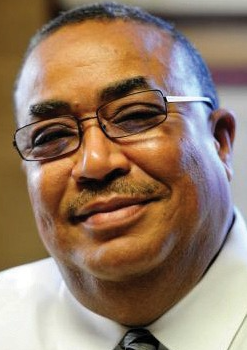Muscle memory got Carmen Bindues through the holiday season in 2020. The tree and decorations went up, but it was mainly for her nieces and nephews.
“This year nothing is out,” said Bindues, who is coping with the deaths of six family members in 2020. She lost her father, an aunt and several cousins within months of each other. Her aunt and two of the cousins died within four days of each other.
While the holiday songs proclaim Thanksgiving to New Year’s as the “most wonderful time of the year,” mental health experts say that it’s OK to not feel the holiday spirit for those like Bindues who are grieving.
And there’s no time limit on grief, said Dr. Gregory Smith, the medical director of Aiken Barnwell Mental Health.
“It’s a very American thing to pull up your bootstraps and carry on,” he said.
But after the death of a loved one, “you’re different.”
Even more than two decades after his own father’s death, Smith said there are times he misses his dad. It’s only that the pain of his absence isn’t as deep as it once was.
The past couple of years have been especially hard, he said.
“In this time of COVID, everyone is grieving something,” he said.
Bindues realizes she was in a state of shock following the deaths especially the death of her father.
Black Friday was one of those days that the two of them held special memories of.
They’d get up early to go to the stores and watch people.
“We never bought anything,” she said.
It was more the fear of missing out on the excitement of it, she said.
Grief isn’t always a feeling of sadness, according to Amy Tupper, an Augusta native who lives in Flowery Branch, Ga. Her mother Noreen Porubsky of Augusta died in September 2018.
“For me, it felt like someone was pressing down on my head and my shoulders. It felt like too much of an effort to breathe,” she said.
When carrying those heavy emotions around, the brain tries to compensate, she said, and rationalize things in an effort to make yourself feel better.
“You can only do that so long. Your body isn’t fooled. Loss is a very physical pain,” she said.
Some people say it’s the year of firsts that are the hardest – the first birthday, the first Thanksgiving, the first Christmas, the first anniversary, but for Tupper, it was the year of seconds.
“All of the chaos of what happened has slowed down, and you are in the full throes of reality,” she said.
And she’d realized she’d lived an entire year without her mother.
Grief can be complicated, especially for those who may have had an estranged relationship with the person who died.
Carey Sisler had a difficult relationship with her mother who died during the summer.
Her mother married young in an effort to escape a homelife that Sisler knows nothing of. She said she has only been able to piece together what sort of abuse her own mother must’ve experienced as a child.
Sisler’s father was much older than her mother, and he died about 18 years ago.
“My dad was a big old teddy bear,” she said
And he loved her daughters.
After he died, Sisler tried to forge a relationship with her mother, but she only received emotional abuse in return. Despite that, she still wonders if there’s more she could’ve done to get the love from her mother that she always wanted.
Those emotions compound her grief and efforts to deal with it, she said. She’s found herself grieving again over the loss of her father.
Sisler said her faith in God has brought her through many of her battles especially in coping with her mother while she was alive, but she’s started seeing a Christian counselor. Bindues has also sought the help of a professional.
And both said they are glad that they have.
Tupper said she still tears up over her mom, and that’s normal. She said people shouldn’t be hard on themselves if they cry or grieve.
It’s normal to feel some degree of sadness during the holidays for those thinking about loved ones and missing them.
“Give yourself permission to grieve,” Smith said.
It’s OK to skip some traditions and start new ones. It’s OK not to go to every event on the holiday calendar, he said, but if the sadness lingers for more than a week or brings along thoughts of suicide, then professional help is needed.
Charmain Z. Brackett is the features editor for The Augusta Press.












